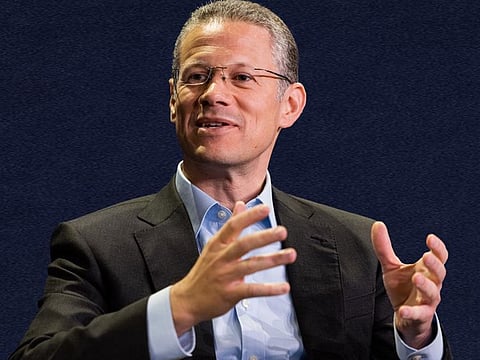How to tackle the humanitarian funding shortfall
The number of people needing humanitarian assistance globally reached 340 million

Leaders from the humanitarian and climate sectors convened for a summit hosted by the Ditchley Foundation and Oxfam. The meeting, titled 'Still too important to fail – addressing the humanitarian financing gap', brought together social sector strategists, donors, policy leaders and private sector innovators in order to determine funding strategies and opportunities required to address a record funding shortfall to support humanitarian crises which has been further heightened by the Covid-19 pandemic and climate change.
The summit invited a variety of expert input and opinion including from Martin Griffiths, United Nations Under-Secretary-General for Humanitarian Affairs and Emergency Relief Coordinator (OCHA), and Rt Hon Sir Alok Sharma, UK Member of Parliament and President of COP26.
In his opening remarks, Badr Jafar, CEO of Crescent Enterprises and COP28 Special Representative for Business and Philanthropy, stated, “less than 8% of global humanitarian appeals were met by businesses in recent years, which is shameful. That said, if engagement seems too risky, the system seems too complex, and the long-term benefits of engagement are not appreciated, it is perhaps not surprising that many businesses don’t engage. That needs to change, and the widening gap in unmet needs means it needs to change fast.”
Discussions highlighted the growing need for humanitarian aid due to increased global conflict and the ongoing climate crisis, with funding requirements for extreme weather now eight times higher than that of 20 years ago. In 2022, the demand for humanitarian assistance skyrocketed to a staggering 340 million individuals’ – an increase of 300% over the past 10 years. In the same duration, appeal requirements reached S$48.7 billion, leaving a shortfall of $33.7 billion.
Jafar, who was appointed to the United Nations Secretary General’s High-Level Panel on Humanitarian Financing, and is a member of the Board of Overseers of the International Rescue Committee (IRC), emphasised that “There is a false perception that humanitarian aid is a one-way street for businesses. Businesses need to start identifying with the business imperative of building resilient communities. It is in the long-term commercial interests of business overall to improve the safety, security and stability of fragile communities. Investing in disaster preparedness is a relatively cheap medium-term investment in the resilience of local communities and the durability of their economies.”
Jafar concluded, “Addressing the humanitarian crisis is a collective responsibility that calls for diverse strategies and partnerships, and it is essential that we bridge the trust divide between the business and the humanitarian sectors. By leveraging the resources, skills, and networks of the business sector, we can find innovative solutions, improve aid delivery, create jobs, and enhance transparency and accountability. Only through such concerted efforts can we bring about the lasting, and long-overdue, change that the most vulnerable on this planet yearn to see.”
The summit serves as a catalyst for fostering collaboration and driving sustainable solutions to effectively address the humanitarian funding gap.
Sign up for the Daily Briefing
Get the latest news and updates straight to your inbox



